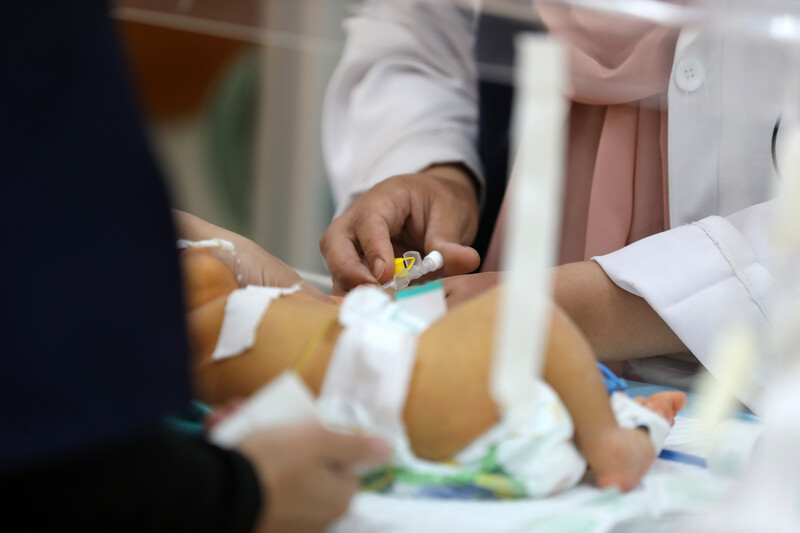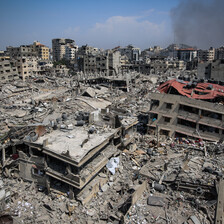The Electronic Intifada 4 June 2024

With 180 women giving birth every day, the engineered collapse of Gaza’s medical services have left childbirth difficult and dangerous. Here a premature baby receives treatment in Deir al-Balah on 29 May.
APA imagesAs an obstetrician and gynecologist from Gaza, I have encountered many difficult situations and terrifying stories during my work in the emergency department at al-Shifa medical complex over the past eight months.
The hospital was a refuge for thousands of displaced people, with tattered tents everywhere, bodies piled up in the corridors, and medical staff working under immense pressure.
After an exhausting 36-hour shift, I would go “home” to what was actually my grandmother’s house, not far from the complex. I had been displaced there early in Israel’s attack, but it seemed a rational place to go since I believed its proximity to my place of work made it safe.
Al-Shifa is – was – the largest medical center in the Gaza Strip and the largest shelter for displaced people. I thought it would be impossible for war crimes to be committed inside it.
Yes, other medical workers and I had naive beliefs regarding the Israeli occupation’s threats to us.
I remember the cold night of 23 December. I was terrified by the sounds of bombing and unable to sleep, so I was browsing my Instagram page, where many followers from Gaza used to receive free medical consultations from me.
All of a sudden, I received a call from one of my followers. She told me she was trapped in northern Gaza and in severe labor. She said she couldn’t call for an ambulance because tanks had surrounded the area, and snipers were everywhere. She was crying and screaming, begging me to help her.
Delivery by phone
I calmed her down and asked if anyone was with her. She told me her mother and husband were there. I said: “Give the phone to your mother,” and I started offering instructions to her mother so she could successfully deliver the baby.
It was not her first birth, so it was easier for the mother to guide her daughter on how to push correctly. Although she gave birth successfully, I was alarmed that the mother told me she couldn’t cut the umbilical cord.
She was crying and the sound of bombardment in the background, which I could hear clearly through the phone, was terrifying.
I felt immense helplessness. I couldn’t reach them nor could the ambulance. The mother was crying, and the husband seemed terrified.
I tried to calm them down and told them to use a sterilized pair of scissors or a knife after boiling it in hot water to cut the umbilical cord.
Then the call suddenly disconnected.
Search ongoing
To this day, I don’t know what happened to this family, whether the new mother survived or if the entire family died.
I tried many times to contact them. The number is out of service. I have searched for her, but I know little about her.
I hope this genocide ends soon, and I can find out something about her.
Finding this new mother has become like an obsession.
According to UNICEF, some 180 women give birth every day in Gaza.
And I am saddened by everything that has happened to us in Gaza, all the horror and tragedy we have lived through.
Still, this woman’s story never leaves me.
Haya Hijazi is a medical student from Gaza.




